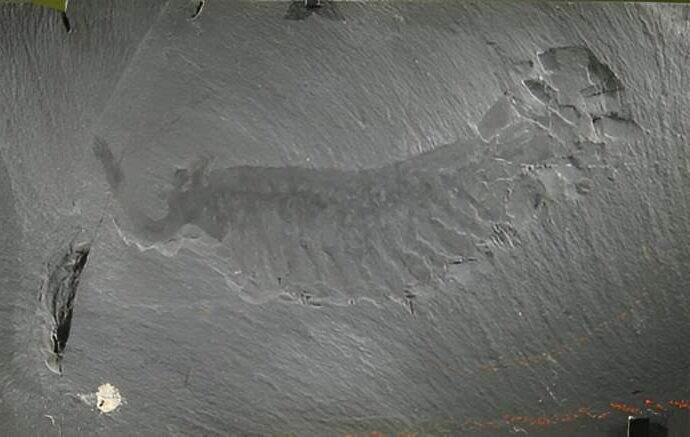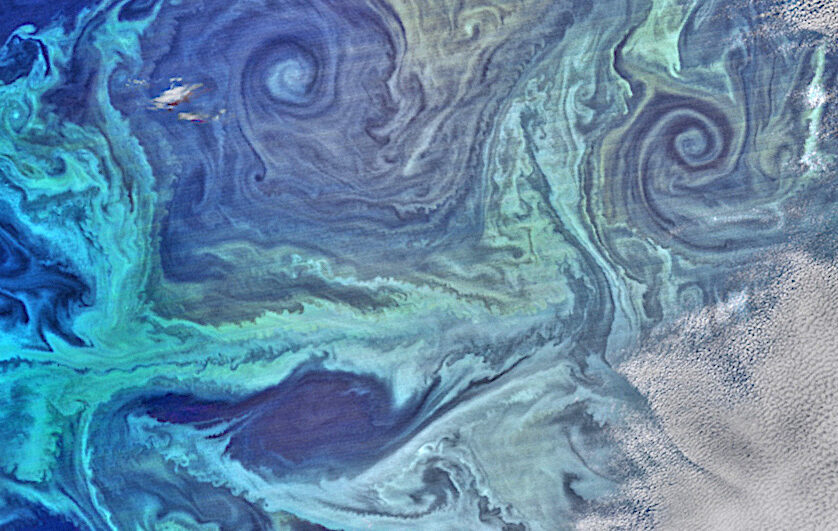Join our team! We are looking for a postdoc interested in applying a new software to determine sedimentation rates in drill cores using both cyclostratigraphic and geochemical information obtained using X-Ray Fluorescence core scannning of sedimentary archives. Our new algorithm developed in our team is taking a multidimensional cyclostratigraphic approach to determine sedimentation rates at … Read More
Uncategorized
New publication: Sustained increases in atmospheric oxygen and marine productivity in the Neoproterozoic and Palaeozoic eras
In 2010, we published an influential paper in PNAS based on molybdenum isotopes in euxinic shales to suggesting Earth’s oxygen level increased in two steps during the rise of animals and rise of land plants. Now, 14 years later, geochemists have collected far more geochemical data from the geological rock record and developed better models … Read More
Geobiology Symposium: Evolution of Phytoplankton
We are excited to announce an upcoming Geobiology Symposium titled “The Evolution of Phytoplankton,” featuring two of the world’s leading experts in the field, Professor Andrew H. Knoll from Harvard University and Professor Roger Summons from the Massachusetts Institute of Technology (MIT). This highly anticipated event will take place at the Globe Institute, University of … Read More
We are hiring! A PhD and a Postdoc in experimental geochemistry
Join our dynamic team at the Globe Institute, University of Copenhagen! We’re on the lookout for a PhD candidate (3 years) and a postdoc (2 years) to become integral members of our Earth History and Geobiology research group. Dive into the exciting Research project, “Natural Carbon Dioxide Removal from a high-CO2 atmosphere,” generously funded by … Read More
Student job: We hire a laboratory assistant to prepare and scan drill cores
We seek a geoscience student who will assist us in the Geobiology laboratory ca. 12 hours per week. You will take part of the research group and work at the forefront of a vibrant geobiological research field. Check out the official posting here . Application deadline is October 9th, 2023. The main focus will be … Read More
Tais W. Dahl appointed Associate Editor for GCA
The joint Publications Committee of the Geochemical and Meteoritical Societies, the sponsoring societies of GCA have appointed Tais W. Dahl as associate editor for the leading international geochemical journal Geochimica et Cosmochimica Acta. The position will run at least through 2026. Geochimica et Cosmochimica Acta (GCA) is sponsored by the Geochemical Society and the Meteoritical … Read More
Talk 6/7-2022: Dahl colloquium at IPM, Hamburg University
July 6th, 2022 @ 17:15. Institut für Pflanzen und Mikrobiologie (IPM) is at Ohnhorststr. 18 in Klein Flottbek, a suburb of Hamburg. Tais will give a lecture for the Institute for Plants and Microbiology (IPM) at Hamburg University entitled: “Atmospheric oxygenation and climatic cooling during the early colonization of the terrestrial environment by plants”. The presentation will … Read More
Telling actual time in the rock record
We have discovered a new method to tell time in the Geological record, using core scanning XRF analyses, which we have now applied to Cambrian and Ordovician rocks to refine the Geological Time Scale. The study, led by my PhD student Zhengfu Zhao, is now published in Nature Communications. The new method was first discovered … Read More
Tais is pitching a Science Slam in the Planetarium
On November 19, the Danish rapper Per Vers will orchestrate Science Slam in the Tycho Brahe Planetarium. The program is found here https://planetarium.dk/program/science-slam-faa-toptunet-din-viden-om-universet/. Tais will give a 7 minutes pitch from his research
EarthTalks at GEOCENTER Denmark
The Section for Geobiology at GLOBE has helped organizing the spring season of EarthTalks 2021, and we welcome interested students and researchers to participate over Zoom (link below). The talks will not be recorded. Earth Talks Lecture Series – Spring 2021 Friday afternoons 14:00-15:00 DK time (sharp) 23/4 – Prof. Sigur∂ur Gislason, University of Iceland The … Read More



